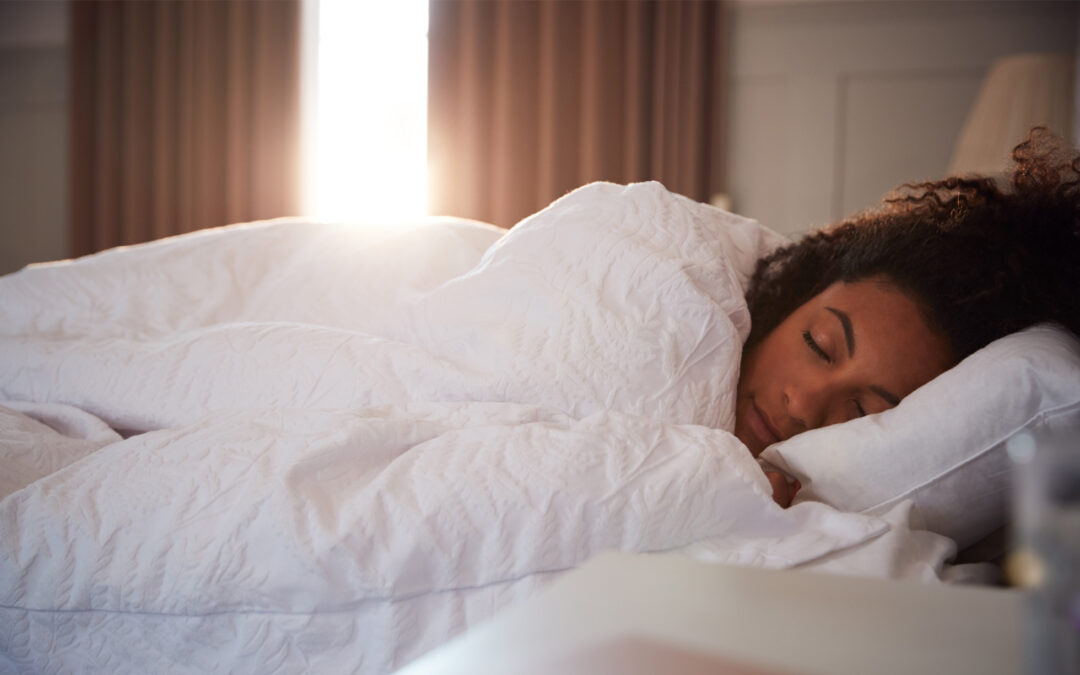
The Power of Sleep
The Power of Sleep
Written by Dr. Nich Pertuit, PhD
Have you ever received the flu shot and wondered why it didn’t work?
It was very likely it was due to lack of sleep. If you get less than 6 hours of sleep per night in the week leading up to your flu shot, you produce only half the antibody response…rendering the vaccination useless.
Sleep (along with all circadian rhythms) has substantial regulatory effects on the immune system. Circulating immune cells peak early in the night and then slowly make their way into lymphoid organs where they get to work ridding your body of virally infected cells.
Lack of sleep for just one night not only reduces the ability of your body to fight current infections, but it can also reduce your natural killer cell count by 70%! That’s not good news, because NK cells (which are a type of white blood cells) help keep us safe from both acute diseases, like the cold and flu, as well as chronic diseases like cancer.
There is good news behind all this, though. The good news is that if you resume sleep back to 7+ hours per night, then in just one night natural killer cell activity can return to its baseline level.
Additionally, getting 7+ hours of sleep leading up to something like the flu shot can help you produce double the amount of antibodies, thus making the shot very effective!
As you can tell, sleep is important for your immune system. However, the reality is that sleep is critical for every major system in the body:
- Memory improves by over 60% after a good night’s sleep
- Body composition, weight, and your diabetic profile (your body’s ability to regulate glucose) are all negatively altered by less than 6 hours of sleep
- Muscle mass, testosterone, and growth hormone are all influenced by sleep
- Your thyroid, adrenal hormones, & ultimately your entire hormone axis are all affected by your sleep patterns!
Did You Know
A good night’s sleep – somewhere in the 8 hour range for most of us – starts long before your head hits the pillow. Listed below are a few of our favorite Healthy Is Wellness strategies for improving your ability to go to sleep – and stay asleep – to allow your body to harness the amazing and rejuvenating power of sleep!
Sleep Improving Strategies
Read Fiction Before Bed
Reading is proven to help reduce stress by calming the autonomic nervous system. Reading fiction in particular helps your mind get into a dream-like state; as opposed to reading for work or business which can actually ramp up the brain into an analytical state. Finally, reading as opposed to watching TV makes it so you avoid the “blue light syndrome.”
Avoid the "Blue Light Syndrome"
Computers, iPads, televisions, and smart phones emit a stronger than normal artificial blue light which signals the brain’s master clock – the suprachiasmatic nucleus (the SCN) – to alert the body to make more cortisol and suppress melatonin, because it believes it must be day time, and so the body needs to be alert and awake. You can avoid this sleep depriving syndrome by avoiding electronics at night (best strategy), wearing blue-light blocking glasses, or changing the settings on your electronic device to non-blue light emitting “night mode” if you use it in the evening.
Get At Least 20 Minutes of Morning Sunlight
Yes, you read that correctly. Morning sunlight helps set the overall circadian rhythm of the body (via the SCN), and allows your body to ramp up your attention, focus, and energy during the day hours, and then creates a stronger signal to your body to start shutting down and getting ready for sleep when light diminishes in the evening hours. You can get more than 20
minutes of direct sunlight for an even better result, but for most of us we can start by finding at least two 10-minute breaks sometime in our morning routine before noon to step outside. Strategies to accomplish this include: talking on the phone while walking outdoors, setting walking meetings with colleagues, not wearing your sunglasses for the a.m. hours (still not a good idea to look directly at the sun, but no sunglasses gets more light to the SCN), and sitting near windows where natural light shines in on you.
Other Healthy Is Wellness approved strategies include:
- meditating, praying, or taking time to unwind with silence in the evening
- creating a predictable sleep routine (just like we do for kids, even if it’s just a 10 minute routine)
- taking a shower right before bed (hot or cold…both work great)
- making it dark and cool in your bedroom (cold air with a thick, weighted blanket works great)
- not eating a meal within 2 hours of bedtime (this allows core temperature to drop for deep sleep)
- taking on a Gratefulness Challenge: i.e. writing three things your thankful each day before bed
- listening to calming music or an audiobook (we really like the Calm app for smartphones)
- talking with a loved one as the last thing before bed
The Power of Sleep
Print out this PDF version and post on your fridge!

